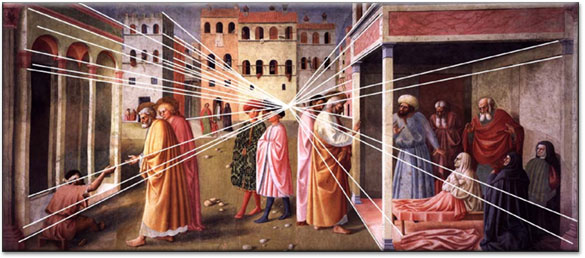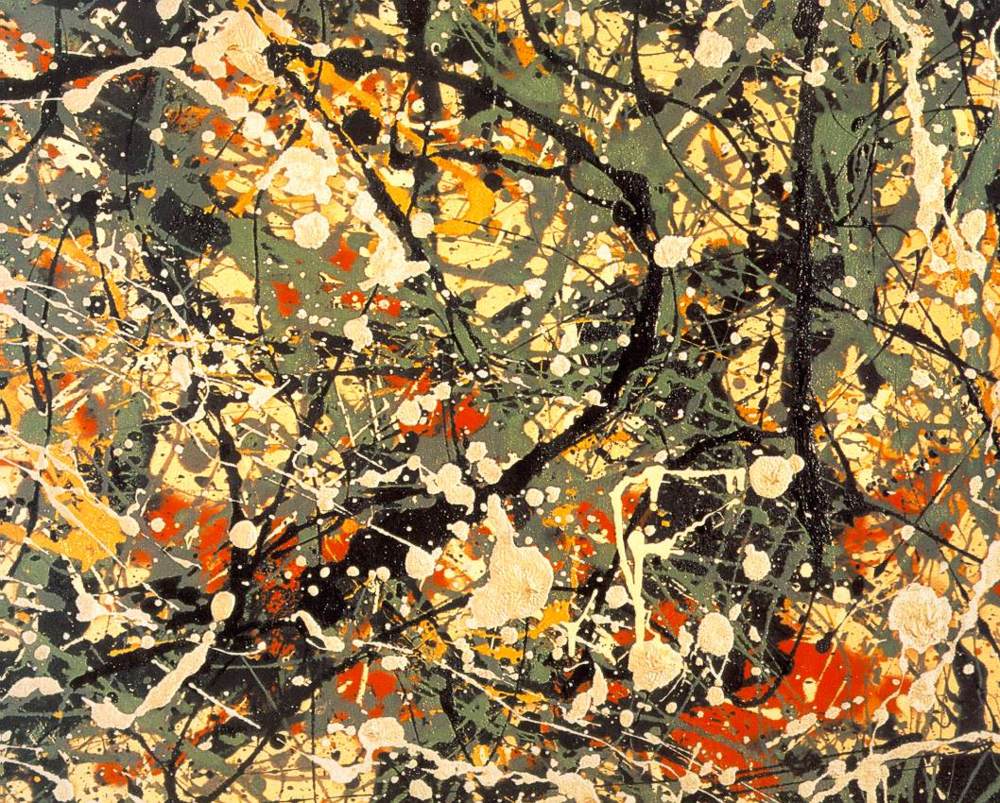Week 2: Mathematics
It is fairly easy to see math being used in the field
of science since scientists frequently must apply mathematical formulas in
their research. On the other hand, I used to not think that math played an
essential role in art and the social sciences. However, I have recently come to
the conclusion that this point of view is incorrect. In art, the understanding
of geometry plays a huge role in creating pictures that appear to show a
three-dimensional space. By having the edges of objects in the picture converge
on a vanishing point, this creates the illusion of perspective (Frantz).
In
addition, math can be used to determine the theory behind origami art and to
determine the solutions for origami problems. These solutions can in turn be
used in engineering that deals with changing the shape of thin material (Lang).
Even in Jackson Pollock’s splattered paint art, art that seem to embrace
randomness over all else, mathematical fractals can be found under differing
levels of magnification (Oulellete). Furthermore, the Fibonacci sequence can be
used to make predictions for trends in the stock market (“Fibonacci Trading”).
It is clear to me now that math plays an essential role in understanding the
social sciences.
I was looking at artist Nathan Selikoff’s website and
I was fascinated by his interactive software art called Beautiful Chaos. In this piece of art, mathematical formulas create
different designs on a screen. There is a motion control device in front of the
screen that changes the coefficient of the formulas based on user input. This
creates an interactive art that is amazing to behold. Beautiful Chaos is art that is derived entirely from mathematics.
Works Cited
"Fibonacci Trading." Fibonacci
Trading. N.p., n.d. Web. 13 Apr. 2015.<http://www.elliottwave.com/fibonacci/leonardo_fibonacci_numbers_sequence/fibonacci-trading.aspx?code=yt>.
Frantz, Marc, “Lesson 3: Vanishing Points and Looking
at Art” 2000
Lang, Robert J. "Robert J. Lang
Origami." Robert J. Lang Origami. N.p., n.d. Web. 13
Apr. 2015. <http://www.langorigami.com/>.
Ouellette, Jennifer. "Pollock's
Fractals." Discover Magazine. N.p., n.d. Web. 13 Apr.
2015.<http://discovermagazine.com/2001/nov/featpollock>.
Selikoff, Nathan. "Beautiful
Chaos." Nathan
Selikoff. N.p., 2013. Web. 13 Apr. 2015.<http://nathanselikoff.com/works/beautiful-chaos>.



No comments:
Post a Comment